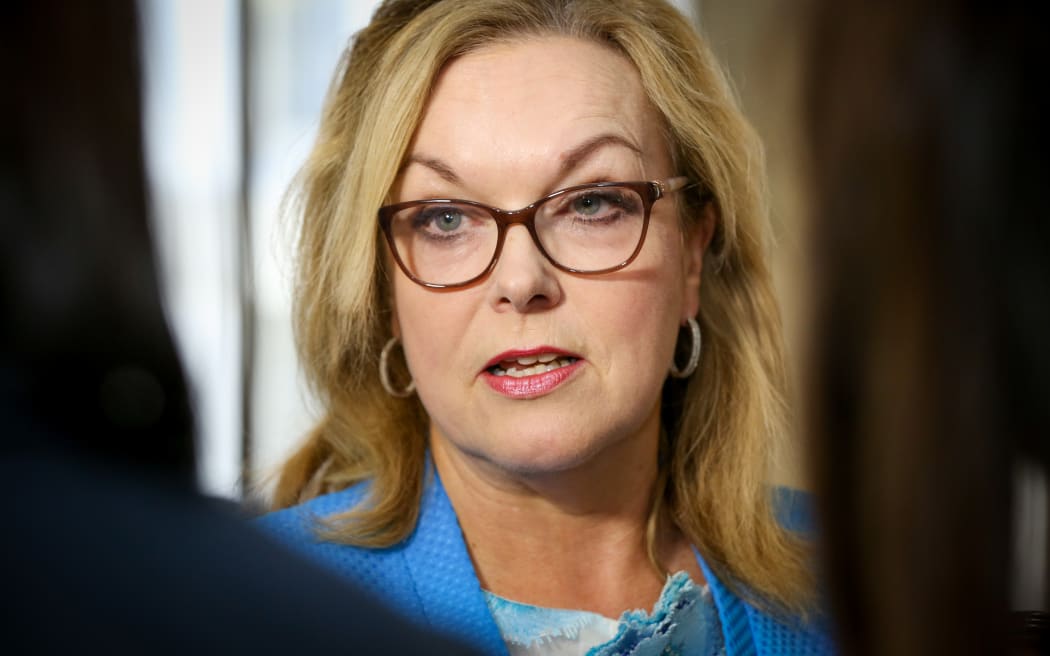New policies on gangs aim to stop the children of gang members following the actions of their parents, says the Minister of Police and Corrections.

Police Minister Judith Collins says the programme would try to help those who want out of gang life Photo: RNZ / Alexander Robertson
The government has launched a multi pronged attack on gangs, seeking to gather more information and tackle drugs, illegal gains and firearms.
But it also aimed to break gang membership continuing on from one generation to the next, which Judith Collins said was a big problem.
"If you have a look at some of the gang families, you can see those generations are coming around very quickly. If you look at the people in jail, they are almost invariably victims of family violence themselves - that's what breeds violence. There are lots of victims of family violence who don't go on to become perpetrators but in gangs, they invariably will."
Ms Collins said the programme would try to help people who want out of gang life.
Another measure would establish a Gang Intelligence Centre, which would combine information from several departments, including the police, Social Development, Customs, Corrections, Internal Affairs and Immigration.
Another measure would aim to dissuade the children of gang members from taking up the gang way of life.
There would be a focus on gang-based drug trafficking networks, and toughened surveillance of gang members who were released conditionally from prison.
There would also be crackdowns on money laundering, access to firearms and drug smuggling at ports.
The government said, as at 2014, 92 percent of gang members had received a benefit, costing the taxpayer around $500 million to that date.
It said 6000 to 7000 children had a gang member as a parent and there was a high level of parental abuse or neglect.
Most of those children were known to Child Youth and Family.
Carrot and stick
Long-time gang member, mediator and gangs advocate Denis O'Reilly said the new policy was a good start as it used a carrot as well as a stick.
"This is going in the right direction if it means an attempt to lift families that are in trapped lifestyles out of that lifestyle. For the first time it introduces carrot and stick.
"We've not seen much carrot for 30 years or so. It's whanau in communities that the answer sits with."
Gang members and gang whanau were disproportionately the victims of crime, so he supported the scheme if it was a true, honest and deliberate attempt to lift those families out of inter-generational lifestyle traps, he said.



